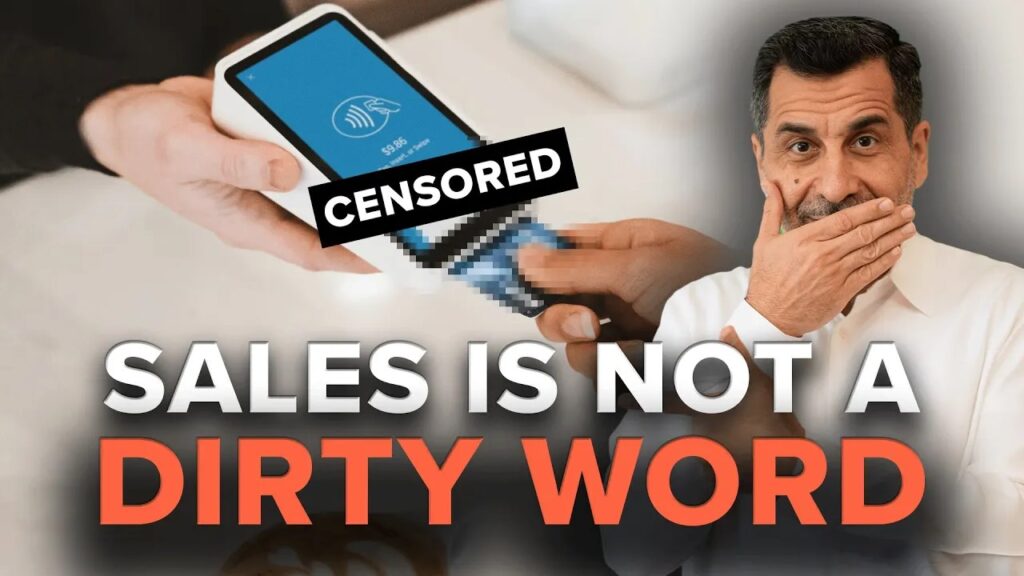How to Overcome Anxiety in Selling: A Business Owner’s Guide

“You can have everything in life you want, if you will just help other people get what they want.”
– Zig Ziglar, bestselling author and master sales trainer
I’ve met a lot of service business owners and consulting entrepreneurs like you. Smart, hard-working, willing to push through any challenge… except for maybe sales. Whether it’s hating parts of the process, a bit of fear and anxiety, or both, any resistance you have to selling can end in business failure.
In this article, I will attempt to change your mindset about sales and show you how doing it right can actually be fun. So if you want to know how to overcome sales anxiety, keep reading.
Why Many Founders Hate Sales
Many people look down on the sales profession. No doubt because many of us have had negative experiences as buyers. Experiences like being pounced on as soon as we enter a store or feeling manipulated by a salesperson using fear and greed to force us to a “yes.”
Sales gets a bad rap because, in many situations, it deserves it.
Here’s the good news: sales doesn’t have to be this sad. You can develop a sales strategy that doesn’t exploit anyone or squeeze leads into signing a deal.
Besides bad experiences as buyers, some research indicates 68% of founders in the US are without prior sales experience. So it’s no surprise that there is an aversion to it. It’s hard to get excited about doing something you have zero experience in and are bad at. Plus, in the consulting space, many of us are more inclined towards our technical knowledge or craft and have stayed far away from sales departments of past jobs.
But sales is part of the entrepreneurial struggle. Even founders with sales experience express how challenging it is at first. It’s one thing to sell a product or service for an established company and another thing to promote yourself without a big support system to help with pitching, follow-up, proposal writing, and delivery.
The hard reality is that sales work is necessary for small business owners and entrepreneurs and there is no way around it. In the early stages of your business, you are probably the one responsible for marketing, accounting, landing clients, and pretty much everything else. So you need to overcome your resistance to sales because if you don’t have anyone buying, you don’t have a business.
Sales is Not a Dirty Word
I want you to succeed in your small business. If you’re shying away from prospecting and pitching, you must change your mindset. Sales is not a dirty word.
Let me ask you a few questions: Do you enjoy helping others? Do you give friends advice? Do you recommend services and products you believe in because someone expressed a need? The answer to these questions is probably yes. And when you helped them, you probably didn’t feel stressed, icky, or manipulative.
Authentic selling is the same: providing real value for your prospective customers and existing clients.
As sales master Brian Tracy famously said, “Approach each customer with the idea of helping him or her to solve a problem or achieve a goal, not of selling a product or service.” It’s about helping others, period.
Do You Have to Be a Great Talker?
Now, you might think, “But Feras, I’m not a gifted conversationalist. I hate small talk!” I hear you. I’m trained as an engineer. Numbers and equations are an easier language for me. Worry not; the good news is that you don’t have to be a brilliant talker to sell well.
Award-winning salesperson and bestselling author Matthew Pollard covered this in his bestseller, The Introvert’s Edge. Matthew wrote about one team he trained to use his sales process based on listening, problem solving, and storytelling (through case studies). He writes, “The ‘naturals’ ignored my training and relied on their extroverted personalities… My introverts, however, followed my method… (Within a matter of a few weeks) all the introverts began to outsell the extroverts.” [source: Matthew Pollard with Derek Lewis, The Introvert’s Edge: How the Quiet and Shy Can Outsell Anyone (New York: Rapid Growth, 2018), 21.]
Wherever you are on the introversion/extroversion spectrum, the point is that selling is not an inherent skill people either possess or don’t. Talking has little to do with it. Asking questions and listening serve you better than trying to talk someone into a sale.
Honest and effective selling is about understanding the lead’s pain points, needs, and wants, and then matching them with excellent solutions, without trying to be slick and sounding good. In sales with integrity, you are coaching your lead toward a decision.
How to Sell Without Feeling Icky
While past unpleasant experiences gave you the false impression of what sales is, you’ve also had many pleasurable experiences. They don’t stick out in your mind because the best sales experiences, those facilitated by true sales professionals, are nearly invisible. You don’t think you were “sold” because you weren’t. You were guided.
Let’s look at an example of what I mean. Ben and Bonnie are struggling to finance a college education for their two children. In their search for answers, they speak with two different financial advisors: Laura and Lisa.
When they meet with Laura, they notice she seems a bit robotic and pretty aggressive. She talks less about college funding and more about a retirement annuity she seems eager to peddle.
The couple leaves the conversation feeling just as confused about their children’s funding.
With reluctance, they meet with the second advisor, Lisa. What a world of difference. Lisa asks a series of thoughtful questions, listens carefully, and then does some research. She promptly gets back to Ben and Bonnie with two viable approaches for college financing, including scholarship opportunities that they were unaware of.
Of these 2 advisors, who do you think Bonnie and Ben will choose? Who will they refer their friends to? Who will they return to for additional needs?
How to Close More Deals Without Being Fake
To sum it up, in order to get better at sales, don’t just talk about the bells and whistles you think are cool or important. Show your leads that you understand them:
- Discover what’s important to them
- Show how your expertise and domain knowledge can help them
- Demonstrate how your service can solve their problem
If you do this consistently, your prospects will feel valued, appreciate the value they’ve received from their conversation with you, and be much more likely to buy from you.
To take the stigma out of sales, be positive, empathetic, and a win-win relationship builder.
Key Takeaways: How to Overcome Sales Anxiety for Entrepreneurs
- Sales is an essential part of entrepreneurship, especially in the early stages when you are responsible for most, if not all, aspects of the business.
- Change your mindset. It’s natural to have anxiety and even a fear of rejection, but sales is about providing real value and helping customers solve problems or achieve goals, not strong-arm manipulation.
- You don’t need to be a great talker; being effective involves understanding your lead’s needs and matching them with suitable solutions.
- Focus on understanding your leads: what’s important to them, how your expertise can help, and how your service can solve their problems.
- Slick tips and tricks aren’t enough. Engage, show empathy, build positive relationships, and create win-win situations to make sales a positive and value-driven experience for both you and your prospects.
Action Items
- Look at your sales process and create a list of go-to questions to help uncover your leads’ problems so you can offer tangible advice.
- With these new questions in hand, find a few friends or colleagues with whom to practice your new sales approach, and elicit their feedback.




